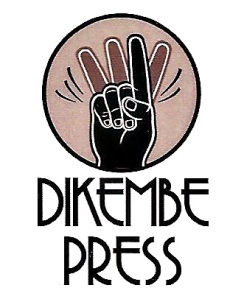This article originally appeared as a post titled "Best Thing I’ve Read Today: Dikembe Press" at Vouched Books on 12 June 2013.
 I first became aware of Dikembe Mutombo during the late-1980s when, under the tutelage of the great John Thompson, he and Alonzo Mourning formed one of the most intimidating frontcourts in the history of college basketball at Georgetown University. He then went on to have an illustrious career in The Association, popularizing his now famous finger wag.
I first became aware of Dikembe Mutombo during the late-1980s when, under the tutelage of the great John Thompson, he and Alonzo Mourning formed one of the most intimidating frontcourts in the history of college basketball at Georgetown University. He then went on to have an illustrious career in The Association, popularizing his now famous finger wag.
Wasn't it a joy, then, when I discovered the inaugural titles from the newly formed Dikembe Press, a chapbook publisher based out of Portland, OR and Lincoln, NE.
Dikembe Press’ first two titles are Matthew Rohrer’s A Ship Loaded With Sequins Has Gone Down and Emily Pettit’s Because You Can Have This Idea About Being Afraid Of Something. The second set of chapbooks, arriving sometime this summer, are already slated: as-of-yet titled manuscripts by Christian Hawkey and Christine Hume.
Rohrer’s collection begins and ends with longer, narrative poems. In between these bookend pieces are a series of four re-combinatory sonnets, each one comprised of three different variations. Take, for instance, the first iteration of the second “Sonnet” as a sample of what you can find within:
 I first became aware of Dikembe Mutombo during the late-1980s when, under the tutelage of the great John Thompson, he and Alonzo Mourning formed one of the most intimidating frontcourts in the history of college basketball at Georgetown University. He then went on to have an illustrious career in The Association, popularizing his now famous finger wag.
I first became aware of Dikembe Mutombo during the late-1980s when, under the tutelage of the great John Thompson, he and Alonzo Mourning formed one of the most intimidating frontcourts in the history of college basketball at Georgetown University. He then went on to have an illustrious career in The Association, popularizing his now famous finger wag.Wasn't it a joy, then, when I discovered the inaugural titles from the newly formed Dikembe Press, a chapbook publisher based out of Portland, OR and Lincoln, NE.
Dikembe Press’ first two titles are Matthew Rohrer’s A Ship Loaded With Sequins Has Gone Down and Emily Pettit’s Because You Can Have This Idea About Being Afraid Of Something. The second set of chapbooks, arriving sometime this summer, are already slated: as-of-yet titled manuscripts by Christian Hawkey and Christine Hume.
Rohrer’s collection begins and ends with longer, narrative poems. In between these bookend pieces are a series of four re-combinatory sonnets, each one comprised of three different variations. Take, for instance, the first iteration of the second “Sonnet” as a sample of what you can find within:
He wrote amazing poems because heEmily Pettit’s collection contains thirteen poems and ten illustrations by Bianca Stone. The poems, which shift and bend through oftentimes absurdist logic, are most successful when articulating some sense of doubt, misunderstanding, or fear. For example, in the poem “You Keep Asking What I Want And I Don’t Know What I Want,” the speaker says:
was fucking a wizard. This perspective
mutilated all his expectations
and he was naked. The wizard threw him
a small thin towel to cover himself with.
I’m sitting in a small bar in Brooklyn
discussing his next move: surely his wife
will climb the pyramid and leap off it
because she is a butterfly. He is
everywhere down there, in the air. Inside
a tiny black bean. It’s not necessary
to live like this, we decide. We crumble
into our highballs, the city outside
consumes things like an enormous creature. (17)
We breathe air.To purchase these titles and discover more information about Dikembe Press and their forthcoming releases, please visit their website.
We keep the same body temperature all day.
We are holding onto things. An unspecified
racket. A small wagon. The biggest warehouse.
It’s ambitious and complicated. It’s a result
that is still unclear and can go either way.
I do not know what I have to make. I make
mistakes and many of them. I’m afraid I make
many mistakes. This has something to do
with the desperation and something to do
with other things too. A web of smoke holding
onto a dark night. Refusing to reflect any light. (17)

No comments:
Post a Comment